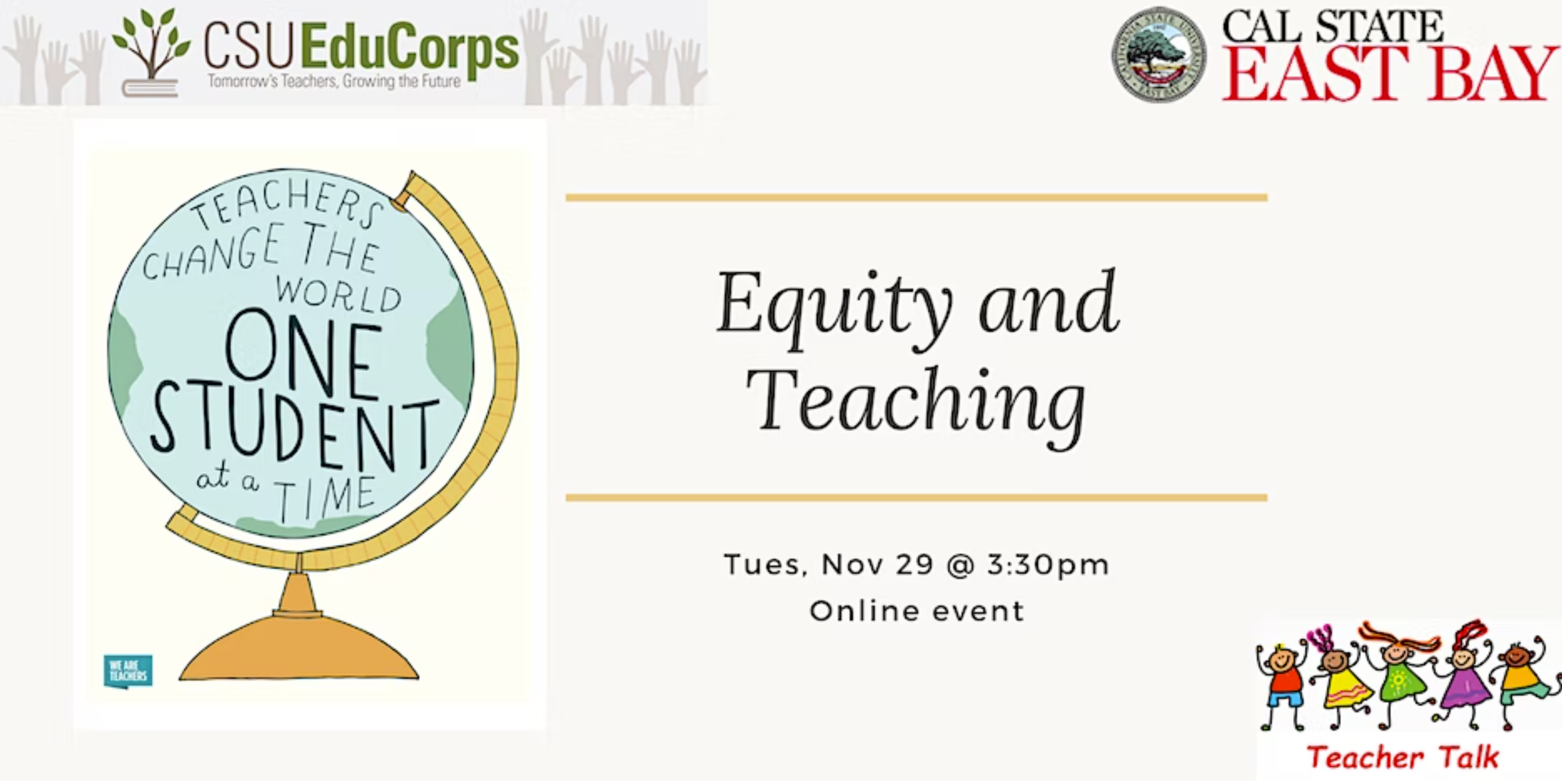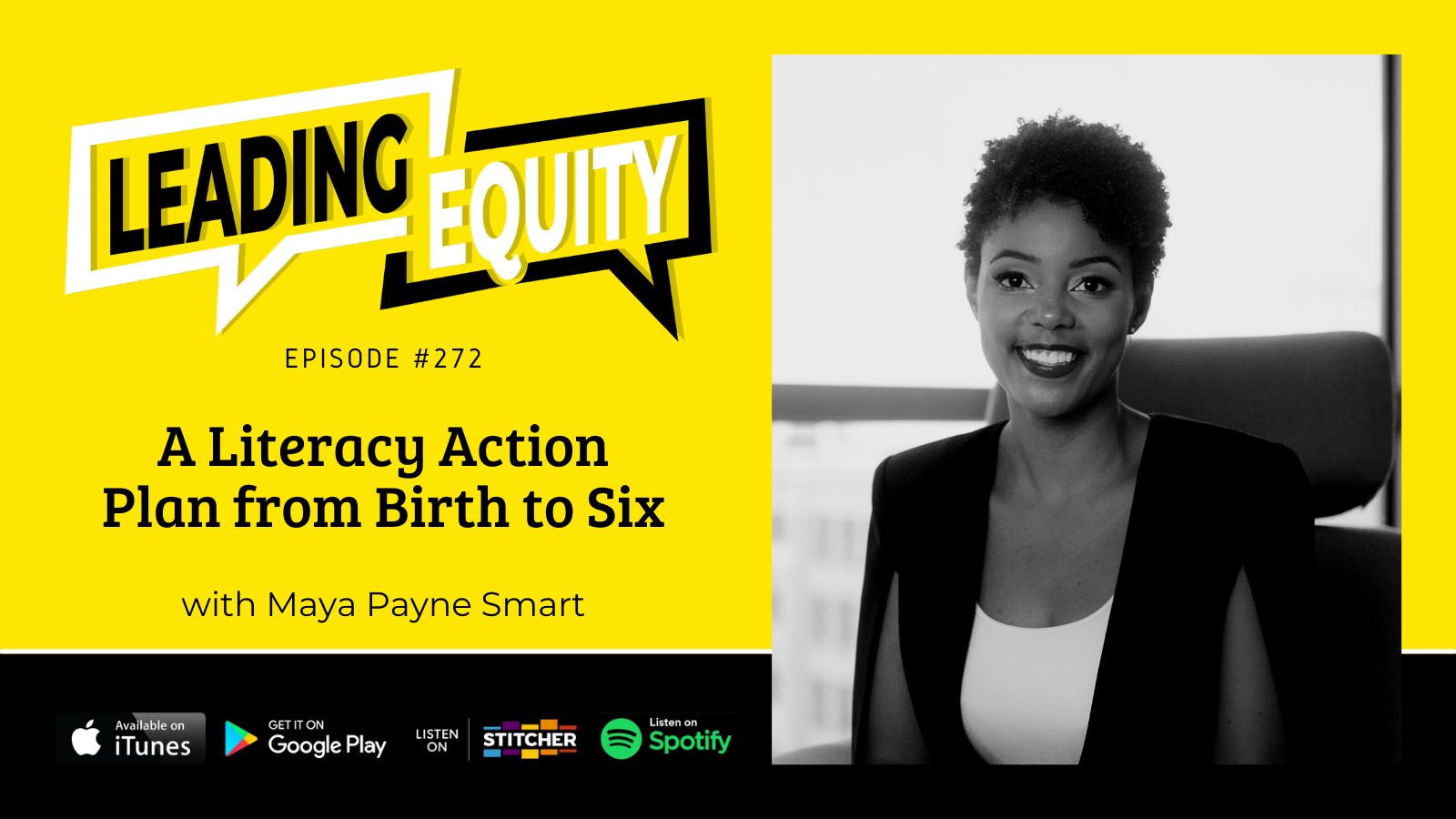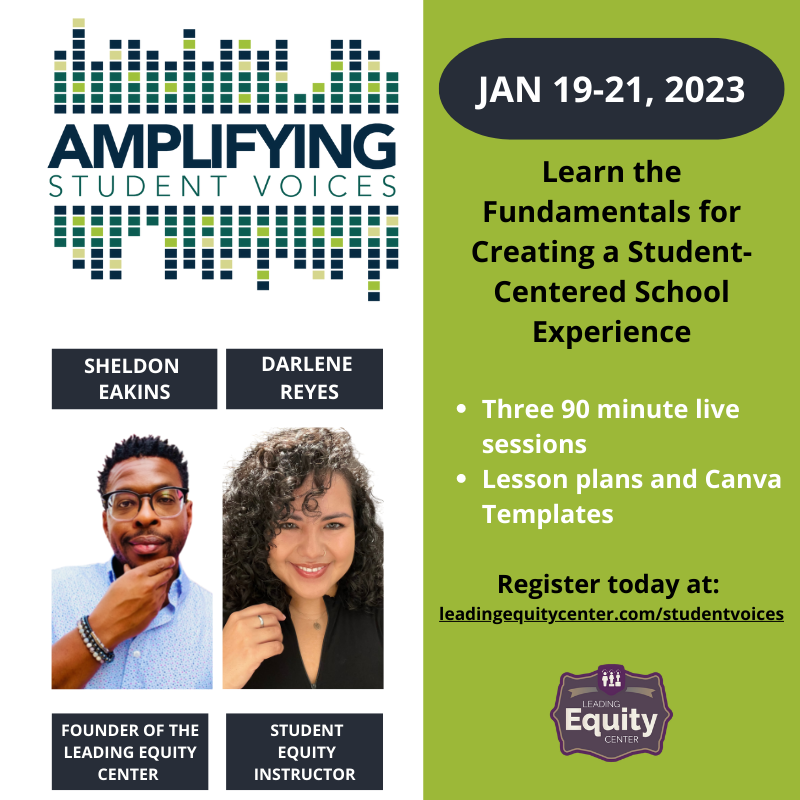In what ways are we prioritizing and elevating students' voices first?

Hey Advocates,
I hope you all could rest and spend time with loved ones last week. Though we focus on being thankful in November for Thanksgiving, every day is a moment to express gratitude for each other.
This week, I was honored to speak to the Cal State University - East Bay EduCorps Group. My topic was "How Do I Make STEM..."
I'd love to work with you and your organization. Here's a list of the Leading Equity Center's services.
Last week we spoke about how New York City students viewed school newspapers, whether it was for a career or activism. As Bronx Teacher David Fulco said, "They [students] see a newspaper as an agent of change, even more so than a student council."
This week, I found an interesting Motherboard Tech by Vice article, "It Only Takes One Parent to Get All The Graphic Novels Removed From a School Library," written by Claire Woodcock. The report takes a closer look into the Owasso school district in Oklahoma, where Tim Reiland, a parent, made a formal complaint over an autobiographical novel their child borrowed from the library as he felt parts of the book were pornographic. There have been previous parent complaints; however, Reiland is the only one to sue the school district, citing it was a First Amendment rights violation. The federal court took Reiland's side, which prohibited Owasso school district from banning him from the school's campus and resulted in the initial draft of a new policy to be voted on to review graphic novels. Yet, it did not include the pornographic screening Reiland was adamant about including. The new policy was passed, which required "every graphic novel in the library to be screened for 'potential material involving sexually explicit content and extreme vulgarity.'" In the process, nearly 3,000 graphic novels were removed for the audit review, and the district states most have been returned to shelves.
This policy change had the parents in mind and how they wanted to protect their children, but how did it affect the students? Elizabeth Donnelly, an Owasso High school senior, stated at the November 14th school board meeting, "This is two months that I, along with many other students, could have been checking out and reading these books. Instead, they sat in tubs and waited for approval that would take months to be granted." Donnelly used to read around five manga books per week as a form of relaxation and now no longer has that option. Woodcock highlights how this instance is an example of nationwide mass book challenges and bans that elicit fear. As Jonathan Friedman, director of free expression and education programs at PEN America, stated in the article, the Owasso instance "reflects both the trend we are seeing all over the country to remove about which anyone complains—or about which anyone could complain–coupled with the longstanding stigma that graphic novels are a less important or less effective reading material for students." As Woodcock states, "Friedman calls the restriction of graphic novels in school libraries a potential infringement on students' constitutional rights, citing concerns over equity of access."
So how are policies truly listening to all students' needs and not solely prioritizing certain students because their parents are the loudest in the room? Especially for students whose sole access to exposure to new cultural and historical knowledge and understanding may be in their school library. At the school board meeting, Donnelly commented on this, stating, "Library materials come from a wide range of authors from different backgrounds and therefore allow students to seriously think about and discuss situations, cultures, and worldviews that are not their own. If books are censored, the view of what reality is like becomes distorted."
How are students' intellectual freedom, as Donnelly comments, factored in? In what ways are we prioritizing and elevating students' voices first?
To learn about a hands-on approach to starting these intentional listening and action-oriented spaces, I invite you to join our "Amplifying Student Voices: The Fundamentals for a Student-Centered School Experience," where you will learn the foundations. If you cannot attend our live programming, we also have a curriculum package where we give you frameworks and presentations on how to do this critical work.
Content created this week:
Show Highlights
- What Maya wishes teachers would have told her as a parent to a young child
- Questions guardians can ask
- Progress monitoring for teachers and communication with guardians
- Top 6 Levers
- Parent/Guardian advocacy strategies
- The importance of partnerships between the school and the home
Session Description
Take a journey with us as Charles Kay Jr. shares his cultural pride and expression story through his artwork. Don't forget to subscribe to the show!
That's all this week,
Sheldon





